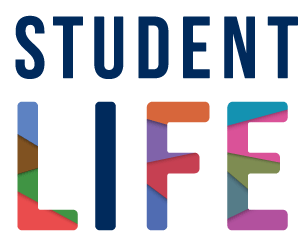
Posted January 26, 2022
By Kirsty Clarke
Feeling stressed out, unhappy, or even unsure how to manage your day-to-day feelings? Emily Saso, a Science undergraduate student in Pharmacology and Physiology, has recently developed journaling templates (PDF) that she is sharing with the U of T community. They include different kinds of approaches to journaling, so you can use the pages you want to suit your mood for the day. She found her way to journaling as a student, while participating in therapy sessions at Health & Wellness.
“I was a patient at the Health & Wellness Centre a few years ago, so I have some lived experience as a student who has used Health & Wellness student resources. Journaling was a helpful way for me to keep track of everything that I wanted to remember for my appointments, especially since at the time I was having appointments once every two to three weeks amidst a busy student life.
By having a place where I could track how I was feeling or write down certain events where maybe my anxiety was triggered in a particularly strong way, I didn’t have the extra mental burden of trying to keep all of it at the front of my mind. I was able to just jot my feelings/thoughts down and know that it would be there for me to recall when I got to my next appointment.”
From her personal experience, she constructed the templates with a range of possibilities, for more general use:
“I recognized that journaling was something I could construct into an accessible mental health resource for students to incorporate into their daily lives and mental health practices. It’s also a way to help expand upon the mental health resources that are currently available to students at U of T. Journaling is a safe space for you to express or explore your thoughts, feelings, ideas and experiences. There are no pressures or expectations with the practice of journaling; the templates are there for you to download and use however you see fit—they can be used in conjunction with Health & Wellness appointments as a supplementary resource or used on their own.”
Saso notes that she created different kinds of pages, since “Journaling can be quite personal when it comes to finding a style of journaling that you find most natural to adopt as a habit. The journal pages are complementary, too—maybe one day you want to use the ‘brain dump’ journal page (which can involve drawing rather than writing, for example) but the next day you want to use the ‘trigger tracker’ page. The ‘describing emotions’ page can also be a helpful tool when writing your feelings or thoughts down on the other journal pages.”
You can explore the templates (PDF) and download them to your phone or desktop, or print out pages. Check out the many Health & Wellness workshops available to build similar coping skills and other U of T resources to meet your mental health needs.




